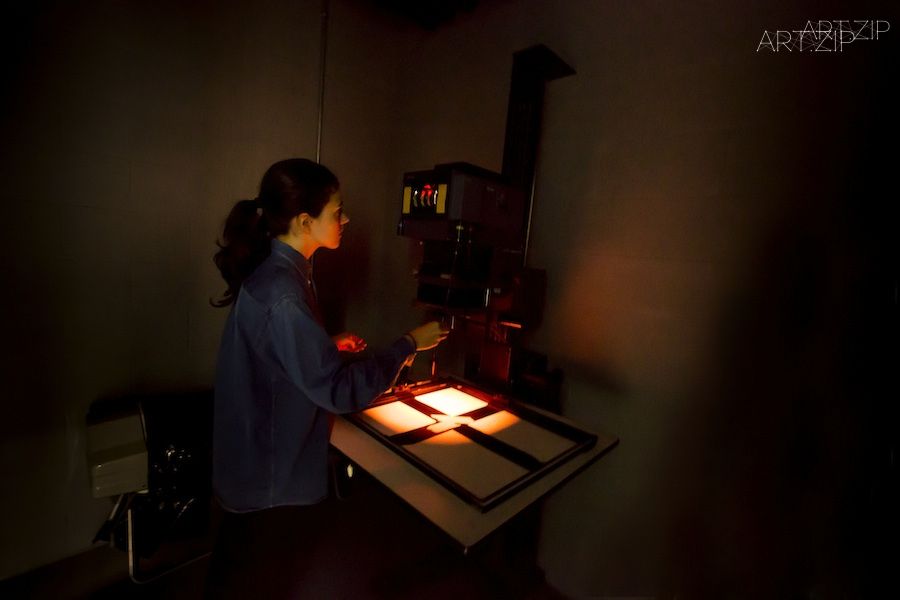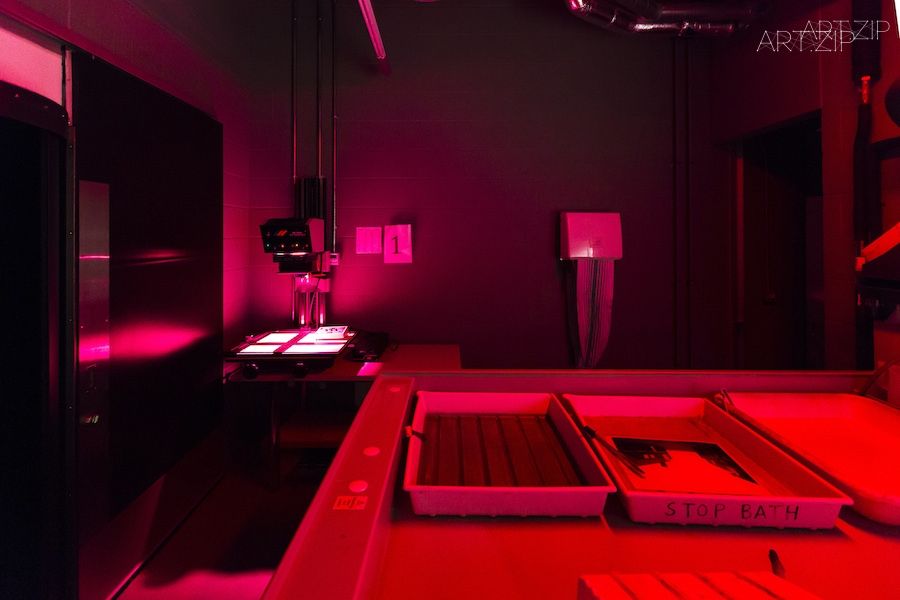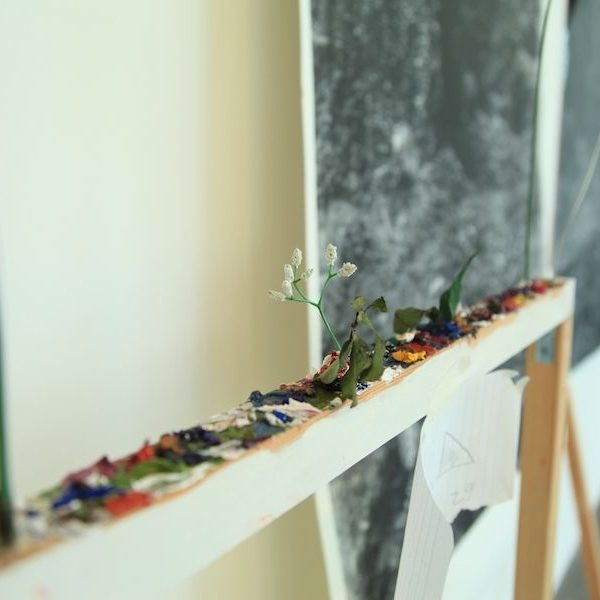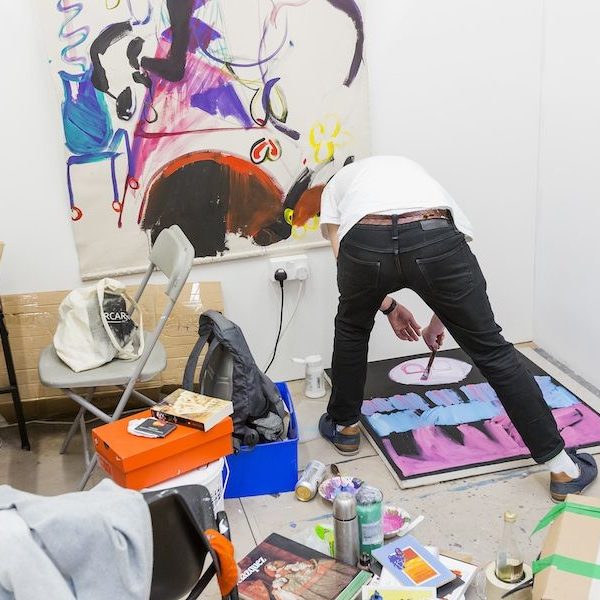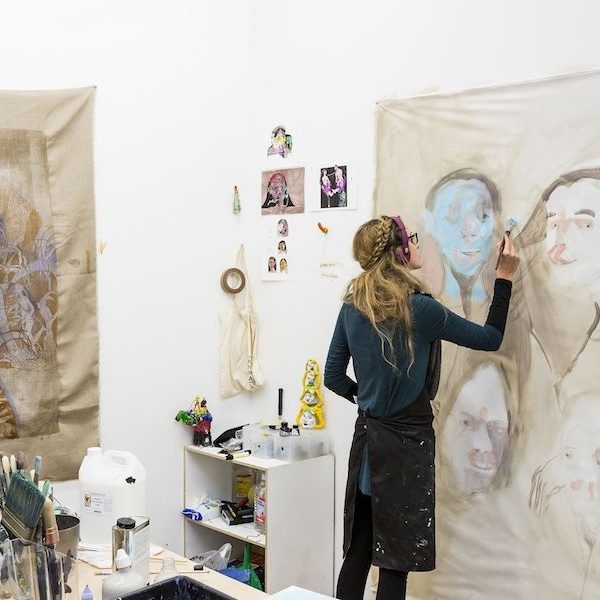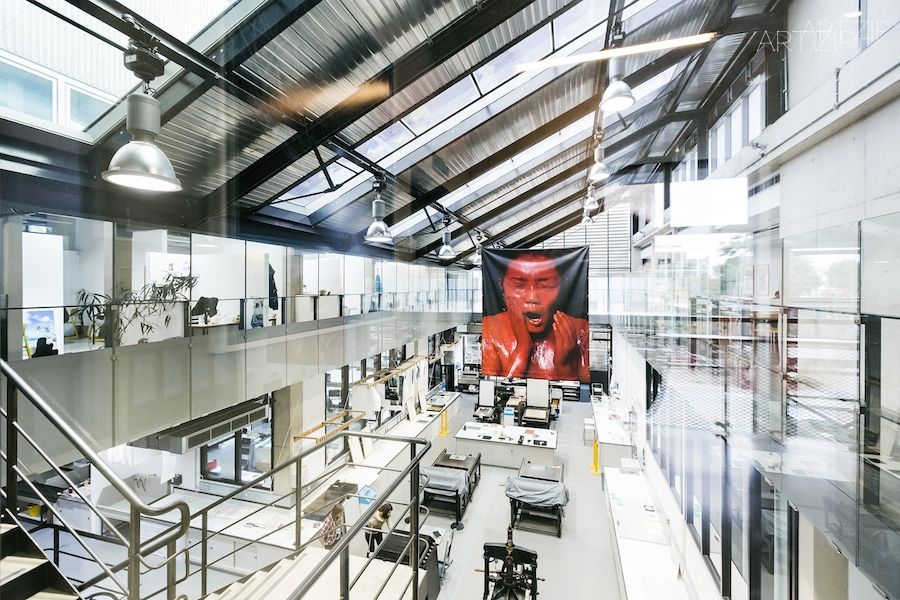
ART.ZIP: Would you talk a bit more about selecting students? What kinds of students will catch your eye? What suggestions would you give to those who want to study at the RCA?
JS: I think you need to be able to think independently, and to want to do something. If you are not quite sure what you want to do, you should have strong ideas of what you want to explore. And have your own ideas, your own curiosities; that sense of being open to what might be given to you is the most important thing. We want to see students trying to make something they care about: it might not be perfect, and it doesn’t have to be finished, because that is the point of somebody coming here to learn things. People should not feel they have to know exactly what they want to do before they come, because that’s just too scary.
The other thing we ask is what else they do in spare time. Do they go theatre, do they read a lot, do they play an instrument, etc., because through that we could better see the creative drive behind their ideas of being an artist; sometimes people are interested in literature and that’s part of why they like making images. That kind of thing would impact on your everyday life, and becomes a really important part of what drives people to make work. There is no one way, because we are not looking for any one type of student. There is not one kind of Royal College of Art student. We deliberately take a very diverse range of students, because it is more interesting and they are going to teach each other. We are looking for a variety of people. All the Chinese students we have at the moment are very different. They need to be bold and brave to apply, and often they have exceptional skills.
ART.ZIP: 您能談談你們是怎麼挑選學生的嗎?您會給那些想要申請這個專業的學生一些什麼建議呢?
JS: 我認為申請人需要有獨立思考的能力,並且渴望去做一些事情。就算你不知道具體要做什麼,但你必須知道你想探索什麼。你需要有自己的想法,好奇心,心態需要開放,這是最重要的。我希望看到學生們為自己關心或關注的事物去奮鬥。想法或許不盡完美,也不需要是完整的,因為這是他們來皇藝學習的原因。就算他們不明確知道具體要做什麼,他們也不應該擔心,不然那就太嚇人了。
另一方面我們還會留意的是申請人在空閒的時候做什麼:他們會不會去劇場看戲,他們是否喜歡閱讀,他們會不會演奏樂器等等。因為通過這些愛好我們可以判斷他們想要成為藝術家的原因,他們創意背後的來源,他們的動力來源等等。譬如說有些人喜歡文學,這並不難想像他們為甚麼也喜歡製作圖像。就是這些方方面面影響著你的日常生活,而這些就成為了驅使你創作的重要原因。當然,并沒有某一種特定的方式方法,因為我們尋找的并不是某種特定類型的學生。皇藝的學生沒有一個固定的類型。我們故意挑選各個類型的學生,因為這樣他們就能互相學習而且學習體驗也能變得更有趣。我們需要的是多樣化的學生。至今為止,所有來這裡學習的中國學生都非常不一樣。我認為中國學生需要勇敢地遞出申請,因為他們往往已經擁有十分出色的技術。
.
ART.ZIP: You have many experiences in China, doing workshops and communicating with students and professors. What do you think the biggest difference between these two education systems?
JS: We are always very impressed by the skills of our Chinese students. They have been trained and taught in a structural way. The most difficult thing for people transferring to a UK programme is that in this system, they need to be quite independent and develop their own judgement about how their work is received. To switch from a hierarchical relationship with your professor, where he is telling you what is good and what is bad, to one in which you may receive technical comments but the ‘good’ or ‘bad’ evaluation of your work is your own is a challenge. Today, there is no one way to be an artist. To navigate that diversity as a young artist is the biggest challenge.
ART.ZIP: 您在中國做過很多工作坊的項目,也和許多教授學生進行過交流。您認為中英教育體制之間有什麼不一樣的地方呢?
JS: 我們通常都會被中國學生出色的技術功底所震撼,他們受教育的方式是非常結構化的。對於他們在英國求學來說最難的是從他們原來的教育體制切換到英國的教育體制,因為英國的課程要求學生非常獨立和能夠自我判斷作品以何種方式被觀者接受。在中國往往是從教授那裡獲得意見,告訴你作品好壞,但到了英國,導師只會給你“技術上”的一些建議,作品的好壞是完全由自己判斷的。這樣的中英體制切換對中國學生來說是一個很大的挑戰。現在的社會,成為藝術家是沒有一個標準模式的,年輕藝術家要往多樣化方向發展也是一個很大的挑戰。

